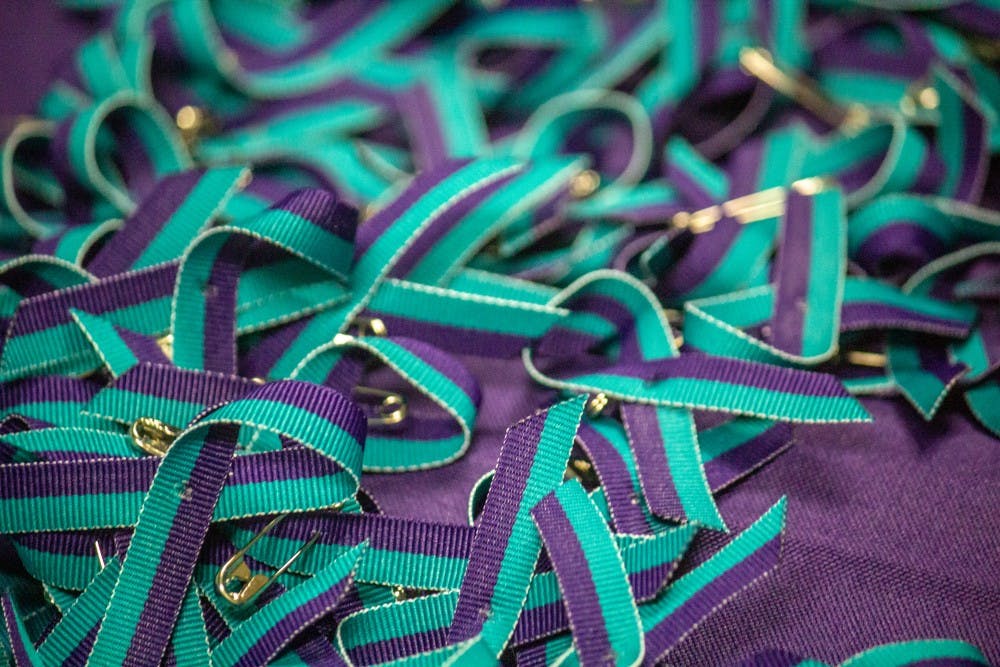Self-care has been clinically proven to reduce anxiety, stress and depression, while also strengthening relationships.
According to Michigan State University Center for Survivors associate director and therapy team supervisor Erin Roberts, self-care can be a helpful strategy for sexual assault and relationship violence survivors during their recovery process.
Roberts said certain self-care methods can offer relief when survivors have been triggered or experienced a particularly hard day.
“That grounding work and that focus on what their needs are and meeting those needs is really important in the healing process,” Roberts said.
MSU Safe Place Advocacy Director Erin Schmittdiel said her work has shown that while self-care is good for everyone, it is especially imperative for survivors of relationship violence.
"Domestic violence survivors are so used to having to care for their partner," Schmittdiel said. "Because they are groomed to think that their partner's needs come first, when they finally break off from that situation, they forget how to care and prioritize themselves."
When it comes to survivors of sexual assault, specifically, Schmittdiel said, self-care is often left on the back burner of treatment methods because the survivor can be overwhelmed by the response to their trauma.
“Maybe they're getting messages from friends and family that they should just 'get over it,' that their trauma isn’t being taken seriously and therefore, you know, survivors of sexual assault may not be taking time for themselves and really focusing on what it is that they need,” she said. “They may be just focused on trying to move forward and ignoring the trauma rather than addressing the trauma itself.”
Schmittdiel added that self-care is different for everybody, and there are many different ways to practice it. MSU Safe Place’s website recommends a variety of practices, including physical, emotional, social and spiritual self care.
Roberts said it is important to note that everyone heals differently, so what may work for one person may not work for another.
“It’s really person specific," Roberts said. "Some people are working on maybe grounding techniques or journaling exercises … for another, it could be calmness that can be as essential (through) breathing techniques. It can also be exercise or carrying out basic needs, like getting to the grocery store ... doctor appointments ... and taking care of your physical health."
For those wanting to start a self-care routine, Schmittdiel said to understand that it doesn’t have to be a time commitment. Starting small is better than not starting at all, she said.
“Even just five or ten minutes can really help people recenter themselves," Schmittdiel said. "So whether that’s journaling for five minutes in the morning or night, where you kind of get all your worries and fears out on a piece of paper … there’s also a lot of five to ten minute guided meditations that you can do."
Though not everyone has the time to engage in some self-care practices, like going on hour-long walks, Schmittdiel said, it's still essential to set aside time for yourself.
Schmittdiel used the upcoming October fall break as an example, urging students to take time to prioritize themselves and their wellbeing rather than using it to catch up on assignments. She added that MSU Safe Place is always a resource for students to reach out to.
“We all need to care for each other. We can’t just individualize our way out of stress and burnout," Schmittdiel said. "We all need community care, too."
MSU Safe Place’s website is safeplace.msu.edu and they can be reached by phone at 517-355-1100 or email noabouse@msu.edu.
Roberts said the MSU Center for Survivors offers a variety of workshops involving grounding and self-care activities, such as virtual yoga classes and art workshops, that anyone can attend.
These workshops and other resources can be found on their website. They also have a 24/7 Sexual Assault Crisis Hotline that can be reached at 517-372-6666.
Support student media!
Please consider donating to The State News and help fund the future of journalism.
Discussion
Share and discuss “MSU experts say self-care can help survivors during recovery, healing process” on social media.







